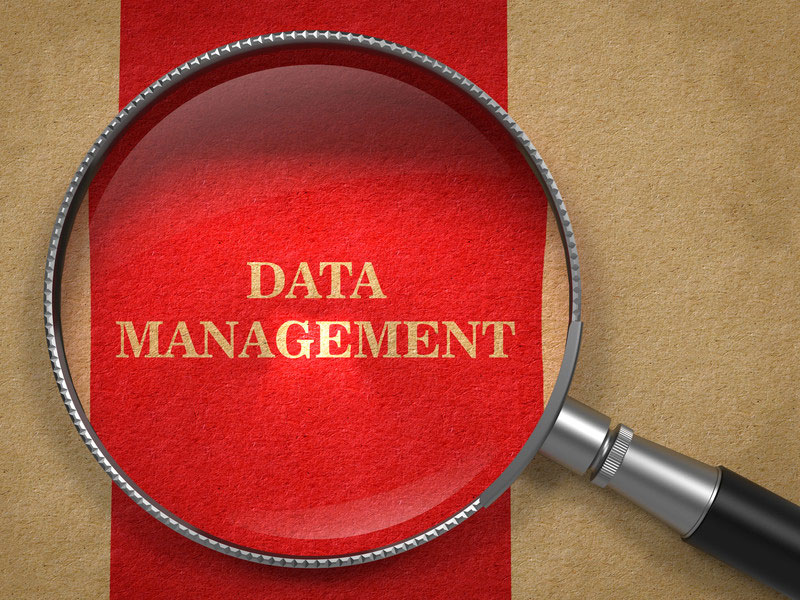Innovation is indispensable for businesses. To stay competitive, they need to leverage the data gathered and implement the best data management practices. Whether it concerns the organization’s in-house processes or their dealings with external agencies such as providers of data conversion services or other outsourced solutions, the right insights are highly significant. Data is a valuable commodity for businesses in any activity they undertake. Understanding this, forward-thinking organizations are always looking for new ways to collect, analyze and utilize business data.
As we enter 2019, digital transformation leaders are coming up with innovative methods to process data better. DataOps is one such collaborative data management approach that is expected to gain popularity in the future. It is an automated, process-oriented methodology used to improve the quality and reduce the cycle time of data analytics. It is a combination of people, processes and technology that is being discussed by various industry analysts. DataOps can enhance communication, integration and automation of data flow across the organization.

At present, DataOps is in its infant stage in the business world. Enterprises are attempting to provide a rough interpretation to it and right now it has only inadequate solutions, framework and guidelines to work with. As such, IT managers and data scientists find it difficult to work with, and how to define the metrics for success. However, it is expected that the year 2019 will see this concept develop further and provide more clarity. Enterprises will learn how to best leverage the principles-based practice for successful implementation. DataOps technology will empower enterprises with efficiency and agility by automating data delivery and processes with outstanding data security and quality. As businesses gather more and more data, the chances of enterprises to adopt DataOps also increase, which will help businesses capture and manage their ever-changing data in a more flexible way. Eventually the new technology will have improved ways to share, integrate and automate data, which in turn will enable the organization to move data at a good speed and remain competitive. Apart from delivering data with utmost accuracy, DataOps can also drive business insights via automation analytics. This new concept will break down silos in IT departments and disrupt typical data processes across the industry.
Considerations When Implementing DataOps
- Democratizing data: According to Experian Data Quality, 96 percent of chief data officers believe that business stakeholders are demanding more access to data than ever before and 53 percent said that lack of data access was the biggest difficulty for driving better decision making. This shows that lack of access to data can be a roadblock to innovation. Machine learning and deep learning require new data to learn and improve, and companies that strive to be competitive need data sets to be available any time. Data democratization will allow even non-specialists to gather and analyze data without external help.
- Automate: To achieve faster time to value on data-intensive projects, it is important to automate data that unnecessarily require manual efforts such as quality assurance testing and data analytics pipeline monitoring. Automation is facilitated by enabling self sufficiency with microservices. When data scientists are enabled to set up models as application program interfaces or APIs, engineers can integrate that code where required without refactoring and thereby improve productivity.
- Leverage platform and open source tools: Businesses would need the best tools to leverage techniques that can transform data into valuable insights via reporting or visualization. Popular languages like R and Python provide great value in bringing data science and machine learning tasks to successful completion.
- Minimize silos: Collaboration is important for DataOps. The tools and platforms you adopt as part of the DataOps journey should not beat the larger goal of bringing your team together to use more data effectively.
- Handle carefully: More companies are taking a Center of Excellence approach to data science management. It is important to have a blueprint for success that addresses the processes, tools, infrastructure, priorities, and key performance indicators that data science teams need to get the return on investment that you are expecting from data science or DataOps.
Developments in data management and strategic use of data insights are interesting not only for businesses but also their supporting agencies such as data entry companies. Surely, DataOps can help huge projects happen faster and with lesser hassles. With focus on people, processes and technologies used to develop, test and release software, this new concept will enable businesses to beat competition. There are a series of open source as well as proprietary software projects such as Flink, Beam, Flume, Anaconda, AirFlow and Squoop that are enabling DataOps, as Andy Palmer, the founder and CEO of TAMR, a next-generation data curation company points out. DataOps enables collaboration between data scientists, engineers, and technologists so that every team is working in sync to leverage data more appropriately and in less time. In the coming months, DataOps is expected to pick up in the market while enterprises and industry analysts determine how to optimize it and what practices it will cover.



